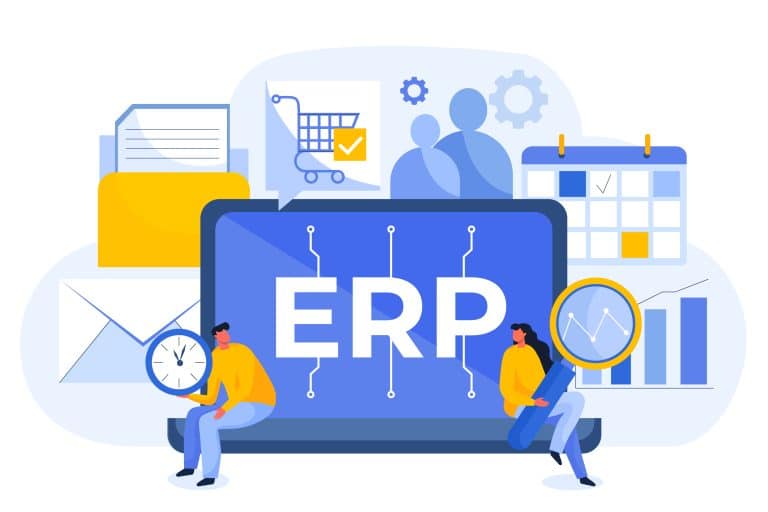NetSuite, a pioneer in cloud-based business management suites, has been pivotal in helping Kiwi companies to streamline essential business operations within a unified, interconnected system. This platform has become a key element for modern New Zealand businesses that need to efficiently manage everything from customer relationship management to e-commerce.
What is Jcurve?
Jcurve Solutions is a leading provider of ERP and service management solutions, with a focus on serving the Asia-Pacific region, including New Zealand. The company is committed to assisting small and medium-sized Kiwi businesses in achieving faster and smarter growth by integrating information, people, and business processes in a seamless manner.
In the fast-changing tech landscape, which is particularly noticeable in the New Zealand market, Jcurve is keenly aware of the evolving expectations of customers. This requires businesses to adapt and transform or risk falling behind their competitors.
Jcurve’s expertise lies at the intersection of human talent and technology. The company offers a wide range of solutions tailored to the New Zealand market, including business management solutions, consulting services, field service management, and digital marketing services.
Through their premier digital solutions and reliable consulting services, Jcurve enables businesses in New Zealand to successfully navigate the shifting tech landscape. Their commitment to helping businesses leverage technology is reflected in their NetSuite training programmes, designed to provide learners with practical skills for real-world applications.
Benefits of Training with Jcurve
- Acquisition of New Knowledge and Beyond: Training with Jcurve offers benefits that go beyond just learning new information. Jcurve provides an immersive learning experience that helps trainees develop a deep understanding of cloud solutions, ERP systems, and business management software.
- Training Grounded in Expertise: Jcurve’s training is built on a foundation of expertise. The training is personalised to suit each learner’s individual style and to provide them with the specific knowledge and skills needed to make the most of NetSuite.
- Pathway to NetSuite Certification: Jcurve offers a pathway to achieving recognised NetSuite certification, which serves as proof of a trainee’s proficiency in NetSuite, enhancing their credibility and career opportunities. For a detailed look at the financial benefits of inventory management, consider exploring The Cost-Benefit Analysis of NetSuite Inventory Management Solutions.
- Competitive Edge for Businesses: NetSuite certification not only benefits individuals but also gives businesses a competitive advantage, allowing them to fully utilise NetSuite. To understand the unique features that set NetSuite’s inventory management apart, consider reading about What Makes Their Inventory Management Stand Out.
Understanding Inventory Control
Inventory control is a critical aspect of any business that directly impacts its profitability, operational efficiency, and success. Effective inventory control involves maintaining the right balance of stock to meet demand without over-investing in inventory.
Principles of Inventory Control
The principles of inventory control in NetSuite focus on accurate forecasting, efficient inventory categorisation, and regular stock level audits. Adhering to these principles can help Kiwi businesses manage their inventory effectively, minimising the risks of stockouts and excess inventory.
Steps to Establish an Effective Inventory Control System
Creating an effective inventory control system involves several key steps, each vital to overall inventory management. This includes establishing reorder points to automate restocking, keeping safety stock levels to guard against unexpected demand, and implementing a reliable stock counting system for inventory accuracy.
Types of Inventory Control Systems
Inventory control systems vary to meet the unique needs of a business. Systems like ABC analysis prioritise inventory management efforts, Just-In-Time inventory reduces holding costs, and economic order quantity (EOQ) calculates the ideal order quantity to minimise total inventory costs. Each system has its advantages and potential challenges, and selecting the right one can significantly improve inventory efficiency.
For those interested in learning more about choosing the right inventory management solution, read How to Choose the Perfect Inventory Management Solution for Your Business.
Setting Up NetSuite for Effective Inventory Control
Configuring NetSuite for effective inventory control requires careful setup to ensure the platform meets your business’s specific inventory requirements.
| Steps for Setting Up NetSuite | Description |
| Preparing Your Data for Transfer to NetSuite | This step requires you to prepare your inventory data for migration to NetSuite. This involves cleaning and organising the data, converting it into a NetSuite-compatible format, and verifying the data to ensure its integrity and accuracy. |
| Customising the System to Fit Your Business Needs | NetSuite offers system customisation options to align with your business requirements. Effective system customisation enhances alignment with business processes, aids in optimising inventory control, and drives improved business performance. |
| Integrating Existing Systems with NetSuite for Enhanced Functionality | The integration of existing systems with NetSuite can enhance system functionality, streamline processes, and improve data accessibility. With the help of NetSuite partners, businesses can ensure a smooth integration process, making the transition seamless and maximising efficiency. |
Jcurve’s Comprehensive Training Programme for Mastering Inventory Control in NetSuite
Jcurve’s comprehensive training programme is designed to equip learners with the skills to confidently manage inventory control in NetSuite.
Overview of the Training Programme
The training programme provides a complete overview of inventory control, with each module addressing a different aspect of the field. The focus on practical skills and real-world application ensures that learners can master and implement effective inventory control within NetSuite.
In-depth Look at Each Module in the Programme
Jcurve’s training includes modules on inventory management principles, such as accurate demand forecasting and inventory categorisation. Other modules cover the practicalities of setting up an effective inventory control system in NetSuite, from reorder points to safety stock levels.
This structured and comprehensive approach allows each trainee to gain a thorough understanding of inventory control within the NetSuite environment. By the end of the programme, trainees are not only versed in inventory management theory but also fully equipped with the practical skills to implement effective inventory control strategies in their own businesses.
Mastering NetSuite with Jcurve’s training not only ensures effective inventory control but also empowers Kiwi businesses to improve operational efficiency, enhance customer satisfaction, and drive growth in today’s competitive business environment.










